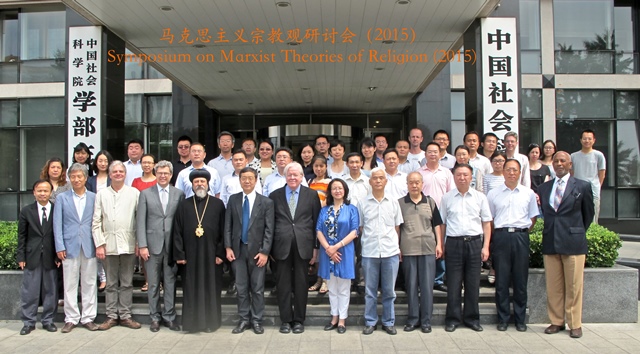Brett Scharffs at Symposium in Beijing on Marxist Theories of Religion – May 2015

Dean Brett G. Scharffs, Associate Dean for Faculty and Curriculum, Francis R. Kirkham Professor of Law, and Associate Director of the International Center for Law and Religion Studies, participated in a Symposium on Marxist Theories of Religion sponsored by the Institute of World Religions, Chinese Academy of Social Sciences on May 30-31, 2015, in Beijing. Professor Scharffs’ presentation was titled, “The Relationship of Religion and the State: The Surprising Similarities and Important Differences in the Political Philosophy of Marx and Locke.” The paper, which will be published in the Chinese Academy of Social Sciences Journal of the Institute of World Religions, will focus on a narrow question: How should we understand the respective views of Karl Marx and John Locke on the ideal relationship of religion and the state?
The paper focuses not on the respective views of Marx and Locke about the truth of (some) religion, its social value, or its historical prospects. Rather, it focuses on the particular issue of how the state should situate itself institutionally vis-à-vis religion. Professor Scharffs argues “that for all their differences – and they are legion – there is a surprising overlap between Marx and Locke in their thinking about the political and legal stance that the state should take towards religion as a social institution. Both argue, powerfully and unequivocally against an alignment of religion and the state, and both argue for a strong separation of religion and the state. The expectation of the ultimate outcome of this separation is different. Locke expects ‘true’ religion to flourish; Marx expects religion, stripped bare of state sanction and support, to gradually recede and perhaps disappear. But that is a question history will answer. For the state, here and now, and all the more in the ‘new normal’ of globalization and rapid social change, both would reject a management mindset and agree that the proper political stance of the state should be one of institutional and financial separation.